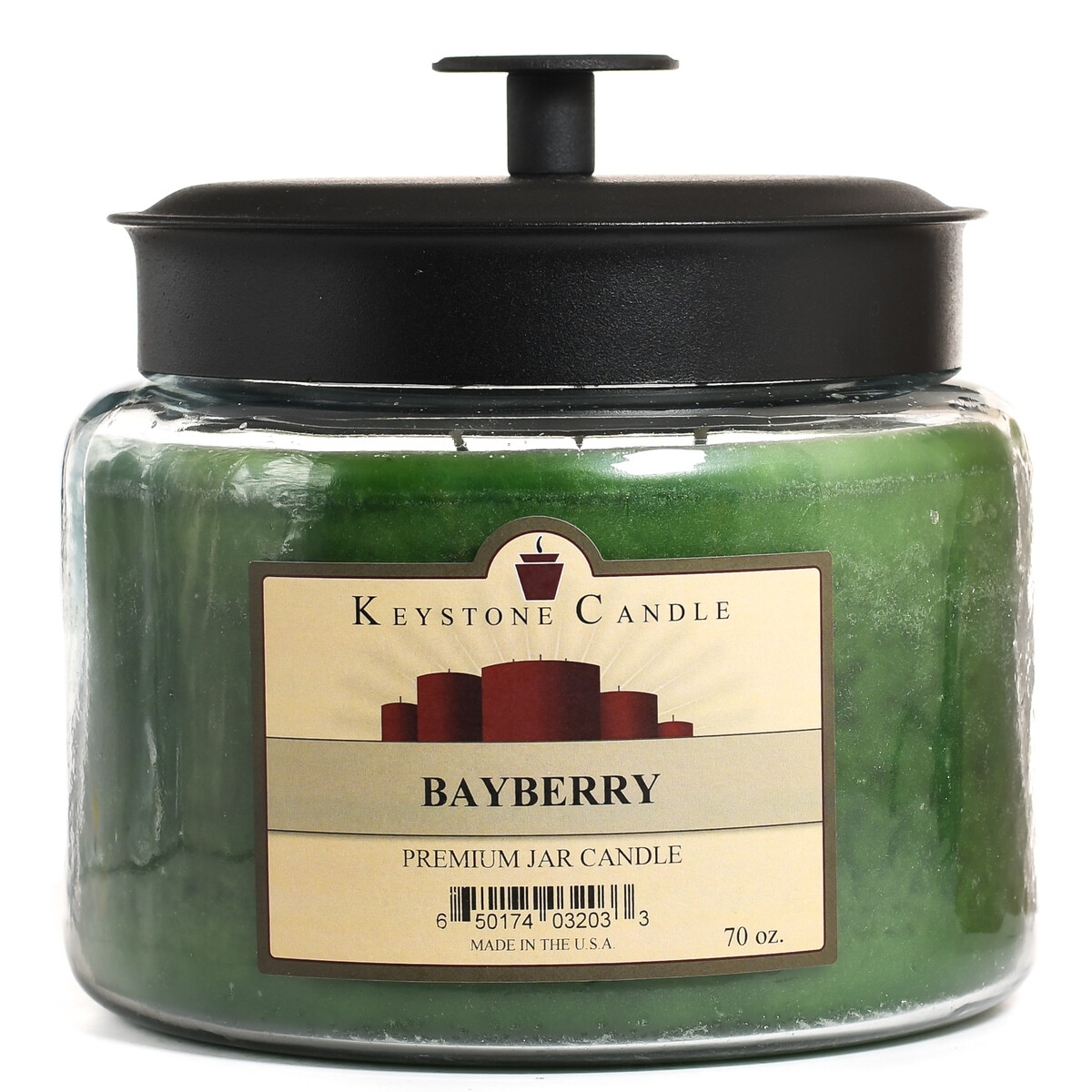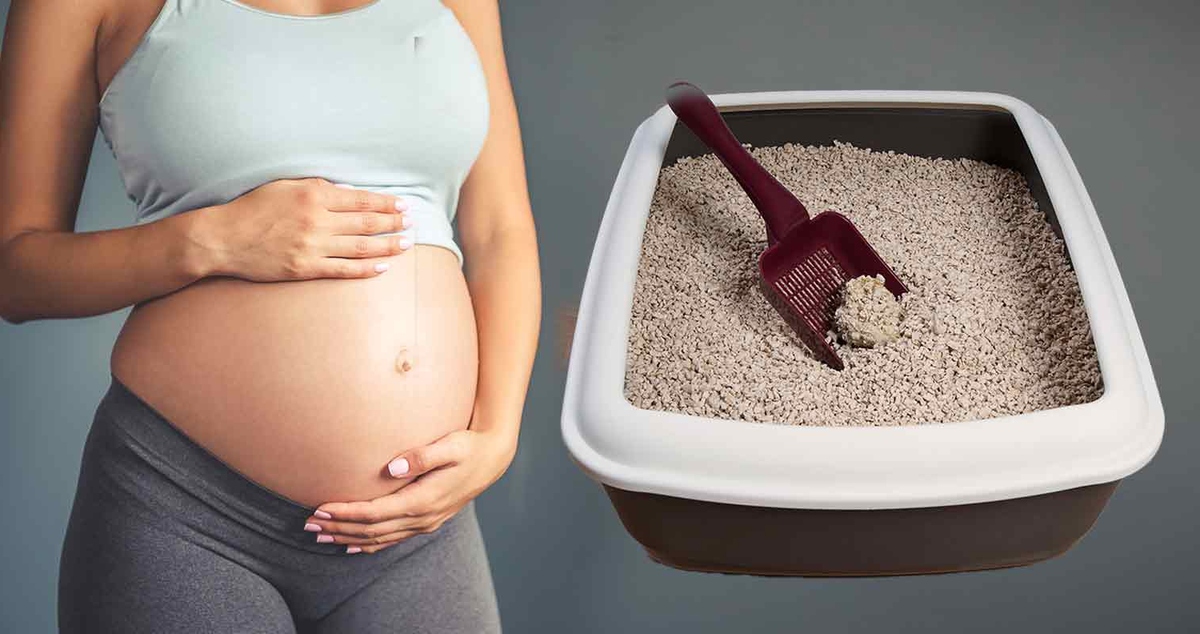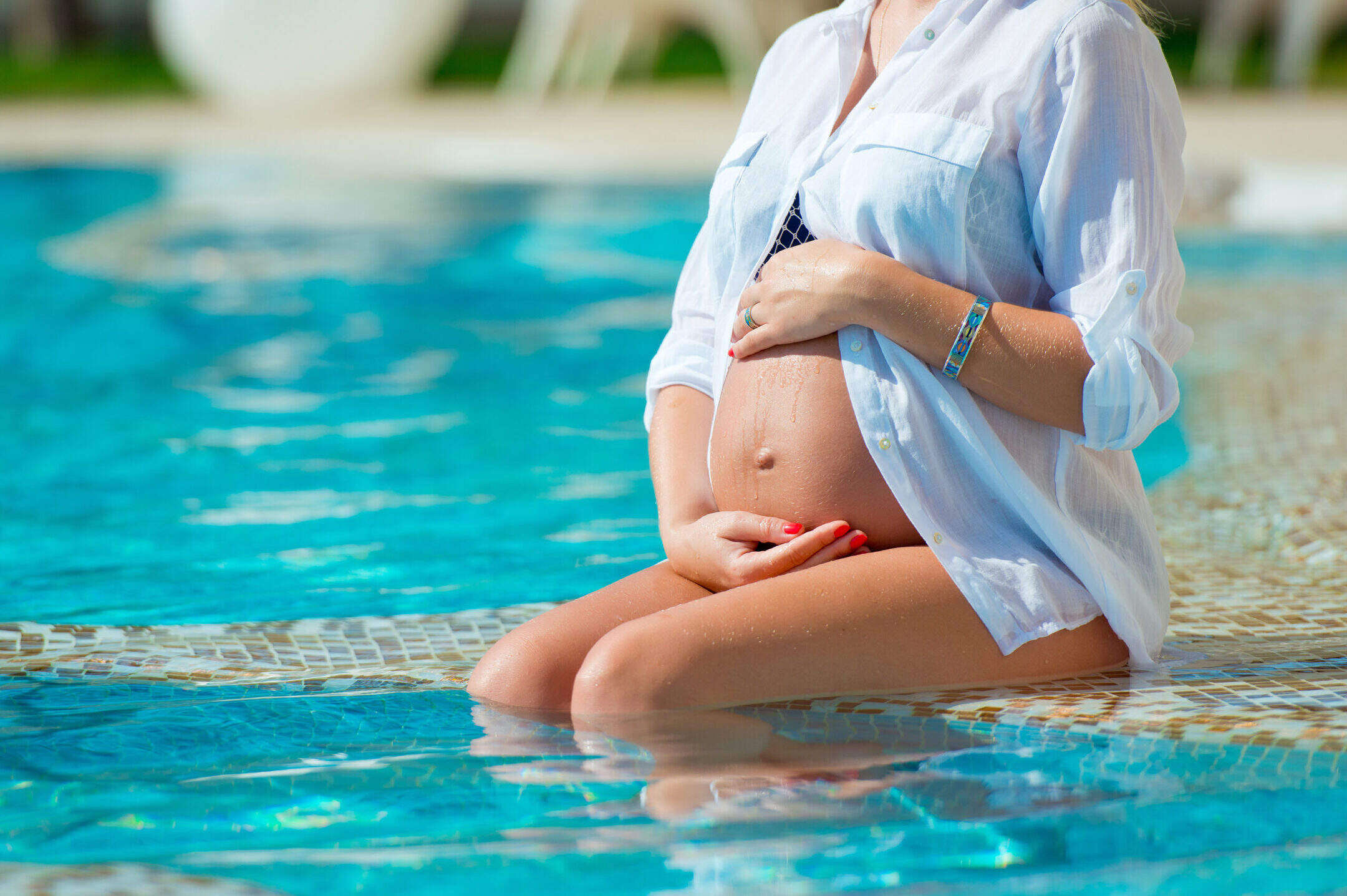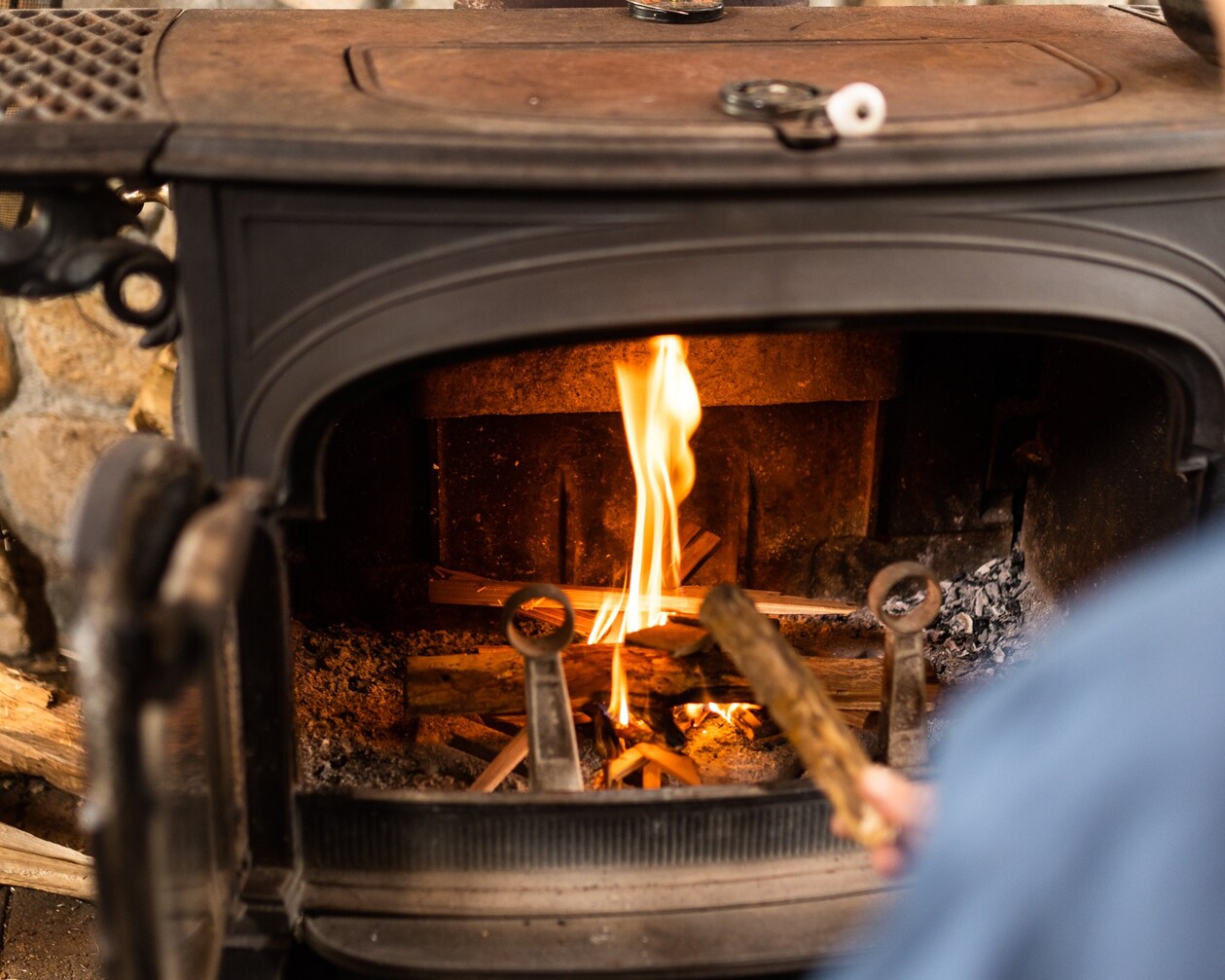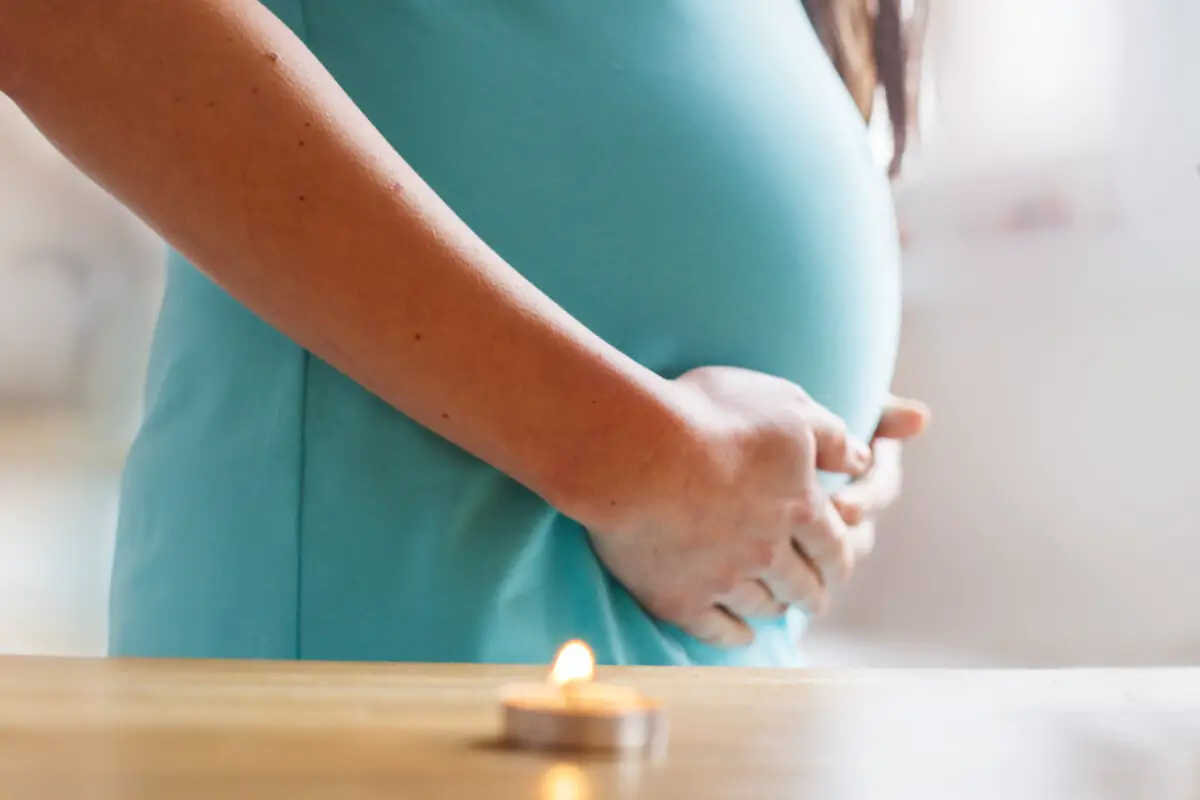

Articles
Can You Burn Candles When Pregnant
Modified: May 6, 2024
"Discover the truth about burning candles during pregnancy. Read our informative articles to find out the safety precautions and potential risks involved."
(Many of the links in this article redirect to a specific reviewed product. Your purchase of these products through affiliate links helps to generate commission for Storables.com, at no extra cost. Learn more)
Introduction
During pregnancy, expectant mothers often prioritize their health and the health of their growing baby. They carefully consider what they eat, drink, and the activities they engage in. In this context, many pregnant women might wonder if it is safe to burn candles in their homes. Candles are commonly used to create a soothing and relaxing atmosphere, but are there any potential risks associated with burning candles during pregnancy?
The answer is not straightforward, as it depends on several factors. While burning candles can add ambiance to a space, it is important to be mindful of the potential risks and take necessary precautions to ensure the safety of both the mother and the unborn child.
In this article, we will explore the potential risks of burning candles during pregnancy, the harmful chemicals that may be present in candles, and alternative options for creating a relaxing environment.
Key Takeaways:
- Burning candles during pregnancy can pose risks such as indoor air pollution, respiratory irritation, and exposure to harmful chemicals. Pregnant women should opt for natural, safer alternatives like essential oil diffusers and LED flameless candles.
- To create a soothing environment without the risks of traditional candles, consider using Himalayan salt lamps, natural light, or aromatherapy rollers. Prioritize safety and relaxation during pregnancy by exploring alternative options.
Read more: Can You Go On A Trampoline When Pregnant
Potential Risks of Burning Candles During Pregnancy
While the act of burning candles itself may not pose a direct risk to pregnancy, there are several potential risks associated with it.
1. Indoor Air Pollution: Burning candles can release harmful chemicals and pollutants into the air, including volatile organic compounds (VOCs) and particulate matter. These pollutants can contribute to indoor air pollution and potentially affect the respiratory health of both the pregnant woman and the developing fetus.
2. Allergies and Sensitivities: Some pregnant women may have allergies or sensitivities to certain fragrances or chemicals commonly used in candles. These allergic reactions can lead to respiratory symptoms such as sneezing, coughing, and congestion, making the pregnancy experience uncomfortable and potentially increasing the risk of complications.
3. Risk of Fire: Candles pose a fire hazard, and accidents can occur if proper safety measures are not followed. Knocking over a lit candle or leaving it unattended can result in burns, property damage, and serious injury.
4. Risk of Carbon Monoxide Exposure: While most candles are not a significant source of carbon monoxide (CO) emissions, it is important to ensure proper ventilation when burning candles in enclosed spaces. Poor ventilation can lead to an accumulation of CO, which can be harmful to both the mother and the unborn child.
It is essential for pregnant women to be aware of these potential risks before deciding to burn candles. Taking proactive measures to minimize these risks can help ensure a safe and healthy environment for both mother and baby.
Harmful Chemicals Present in Candles
Candles are often made from a variety of materials, including paraffin wax, soy wax, beeswax, and various types of fragrance oils. While candles can be a source of relaxation and enjoyment, it is important to be aware of the potential harmful chemicals that may be present in them.
1. Paraffin Wax: Paraffin wax, derived from petroleum, is commonly used in candles due to its affordability and availability. However, when burned, paraffin wax releases toxic chemicals such as benzene and toluene, both of which are known carcinogens.
2. Fragrance Oils: Many candles are scented with fragrance oils to create pleasant aromas. However, these fragrance oils can contain synthetic chemicals such as phthalates, which are linked to hormonal disruptions and reproductive issues. It is important to note that not all fragrance oils are harmful; natural essential oils are a safer alternative.
3. Lead in Wicks: In the past, candle wicks were often made with lead cores, which pose significant health risks when burned. However, in recent years, most candle manufacturers have transitioned to using lead-free wicks. It is still important to check the labels or inquire about the wick materials when purchasing candles.
4. Dyes and Colorants: Candles that are brightly colored often contain dyes and colorants that can release additional chemicals when burned. These chemicals may include heavy metals like lead and cadmium, which can be harmful when inhaled.
When choosing candles, pregnant women should opt for natural alternatives that are free from harmful chemicals. Look for candles made with pure beeswax, soy wax, or coconut wax, and scented with essential oils. These options are typically safer and provide a healthier environment for both the mother and the baby.
Effects of Candle Smoke on Pregnancy
The smoke emitted from burning candles can have various effects on pregnancy and the well-being of both the mother and the unborn child. It is important to understand these potential effects to make informed decisions about burning candles during pregnancy.
1. Respiratory Irritation: Candle smoke can cause respiratory irritation, especially for individuals with pre-existing respiratory conditions such as asthma or allergies. Pregnant women may experience symptoms such as coughing, wheezing, and shortness of breath if they are sensitive to the smoke.
2. Decreased Indoor Air Quality: Candle smoke, particularly when candles are burned in enclosed spaces with insufficient ventilation, can contribute to decreased indoor air quality. This can lead to an accumulation of pollutants and potentially worsen respiratory symptoms for pregnant women.
3. Chemical Exposure: As mentioned earlier, candles can release harmful chemicals into the air when burned, including VOCs and particulate matter. These chemicals can be inhaled by the pregnant woman and potentially cross the placenta, exposing the developing fetus to unnecessary risks.
4. Hormonal Disruptions: Some chemicals present in candle smoke, such as phthalates found in fragrance oils, have the potential to disrupt hormones. Hormonal disruptions during pregnancy can interfere with fetal development and may increase the risk of complications.
5. Stress on the Immune System: The body’s immune system is already under stress during pregnancy, and exposure to candle smoke can further burden the immune system. This can make pregnant women more susceptible to respiratory infections and other health issues.
Considering these potential effects, it is advisable for pregnant women to minimize their exposure to candle smoke. Opting for safer alternatives, such as using essential oil diffusers or natural air purifiers, can help create a relaxing environment without the risks associated with burning candles.
It is generally safe to burn candles when pregnant, but it’s important to choose natural, non-toxic candles to minimize exposure to harmful chemicals. Be sure to keep the room well-ventilated and never leave a burning candle unattended.
Candle Safety Measures for Pregnant Women
While burning candles during pregnancy may pose certain risks, taking appropriate safety measures can help minimize these risks and ensure a safer environment for both the mother and the unborn baby. Here are some candle safety tips specifically designed for pregnant women:
1. Choose Safer Candle Options: Opt for candles made with natural materials such as beeswax, soy wax, or coconut wax. These candles are typically free from harmful chemicals and produce less soot and smoke when burned.
2. Avoid Synthetic Fragrances: Synthetic fragrance oils often contain phthalates, which can be harmful during pregnancy. Instead, choose candles scented with natural essential oils or look for fragrance-free options to minimize exposure to potentially harmful chemicals.
3. Opt for Lead-Free Wicks: Ensure that the candles you purchase have lead-free wicks. Most candle manufacturers have transitioned to using safer, lead-free wicks, but it’s always wise to double-check the labels or inquire about the wick materials before purchasing.
4. Proper Ventilation: When burning candles, ensure proper ventilation in the room to reduce the concentration of smoke and pollutants. Open windows or use fans to improve airflow and minimize the potential negative effects of candle smoke.
5. Trim the Wick: Before lighting a candle, always trim the wick to approximately ¼ inch to minimize excessive flame height and the release of soot. This not only helps with a cleaner burn but also reduces the risk of accidental fires.
6. Never Leave Candles Unattended: It’s important to never leave a lit candle unattended, especially during pregnancy. Accidents can happen in an instant, and an unattended candle can pose a fire hazard. Always extinguish candles before leaving the room or going to sleep.
7. Keep Candles Away from Flammable Materials: Ensure that candles are placed on heat-resistant surfaces and are kept away from curtains, fabrics, papers, and other flammable materials. This helps prevent accidental fires and ensures the safety of both the pregnant woman and the surrounding environment.
8. Consider Safer Alternatives: If you’re concerned about the potential risks of burning candles during pregnancy, consider using alternative methods to create a relaxing ambiance. Essential oil diffusers, Himalayan salt lamps, or LED flameless candles can all provide a similar soothing atmosphere without the potential risks associated with burning traditional candles.
By following these safety measures, pregnant women can still enjoy the coziness and relaxation provided by candles while minimizing the possible risks associated with their use.
Read more: Can You Sleep In A Recliner When Pregnant
Alternative Options for Creating a Relaxing Environment
If you’re looking to create a soothing and calming atmosphere during pregnancy but prefer to avoid the potential risks associated with burning candles, there are several alternative options available. These alternatives can help you create a relaxing environment without compromising the safety of you and your baby. Here are some ideas:
1. Essential Oil Diffusers: Essential oils are a great option for creating a serene ambiance. Use an essential oil diffuser to disperse your favorite blends into the air. Lavender, chamomile, and citrus scents are known for their calming properties and can help promote relaxation.
2. Himalayan Salt Lamps: Himalayan salt lamps emit a soft, warm glow and can help create a peaceful atmosphere. They are believed to promote relaxation, purify the air, and create a calming ambiance in any room.
3. LED Flameless Candles: LED flameless candles are a safe alternative to traditional candles. These battery-operated candles provide a realistic flickering flame effect without the risk of fire hazards. They come in various sizes and can be a great addition to your relaxation routine.
4. Natural Light: Utilize natural light to create a serene environment. Open up curtains and blinds during the day to let in the daylight. Natural light has a positive impact on mood and can help create a peaceful atmosphere in your home.
5. Soft Music and Relaxation Sounds: Play soft, soothing music or nature sounds in the background to create a serene ambiance. Sounds of gentle rainfall, ocean waves, or calming instrumental music can help you relax and unwind.
6. Aromatherapy Rollers and Balms: Instead of burning scented candles, consider using aromatherapy rollers or balms. These portable options allow you to apply diluted essential oils directly to your skin, providing a calming and relaxing effect.
7. Meditation and Breathing Exercises: Practice meditation and deep breathing exercises as a way to create a relaxing environment. Find a quiet space, sit comfortably, and focus on your breath. This can help reduce stress and promote serenity.
8. Create a Cozy Space: Enhance the comfort of your space by adding soft blankets, plush pillows, and cozy rugs. Surround yourself with items that promote relaxation and make you feel at ease.
Remember, the goal is to create a calming environment that allows you to unwind and de-stress during your pregnancy. By exploring these alternative options, you can still achieve a serene atmosphere without the potential risks associated with burning traditional candles.
Conclusion
When it comes to burning candles during pregnancy, it is important to weigh the potential risks and benefits. While the act of burning candles itself may not be inherently dangerous, there are certain factors to consider in order to prioritize the health and safety of both the expectant mother and the unborn baby.
The potential risks of burning candles during pregnancy include indoor air pollution, exposure to harmful chemicals, respiratory irritation, and the risk of fire and carbon monoxide exposure. These risks can be minimized by adopting safe practices such as choosing candles made from natural materials, avoiding synthetic fragrances, ensuring proper ventilation, and practicing candle safety measures.
However, it is worth mentioning that there are alternative options available for creating a relaxing environment without burning traditional candles. Essential oil diffusers, Himalayan salt lamps, LED flameless candles, and other natural methods can provide a soothing ambiance without the potential risks associated with burning candles.
Pregnancy is a special time that calls for extra precautions and care. While it is important to prioritize relaxation and self-care, it is equally crucial to be mindful of the potential risks and make informed decisions. By considering the information presented in this article and implementing appropriate safety measures, pregnant women can create a serene and comforting environment without compromising their well-being or that of their unborn child.
Remember, every pregnancy is unique, and it’s always a good idea to consult with your healthcare provider or obstetrician if you have any specific concerns or questions related to burning candles during pregnancy. Your healthcare provider can provide personalized advice based on your individual circumstances.
Ultimately, the choice is yours, but by being informed and taking the necessary precautions, you can enjoy a safe and relaxing environment throughout your pregnancy journey.
Curious about creating a serene home atmosphere without the worry? If you're pondering safer alternatives to scented candles during pregnancy, our latest article on unscented candles is a must-read. We've rounded up the top picks that promise a cozy, inviting ambiance without any risks. Dive into the details and find out which candles made the list for the safest and most serene options available.
Frequently Asked Questions about Can You Burn Candles When Pregnant
Was this page helpful?
At Storables.com, we guarantee accurate and reliable information. Our content, validated by Expert Board Contributors, is crafted following stringent Editorial Policies. We're committed to providing you with well-researched, expert-backed insights for all your informational needs.

